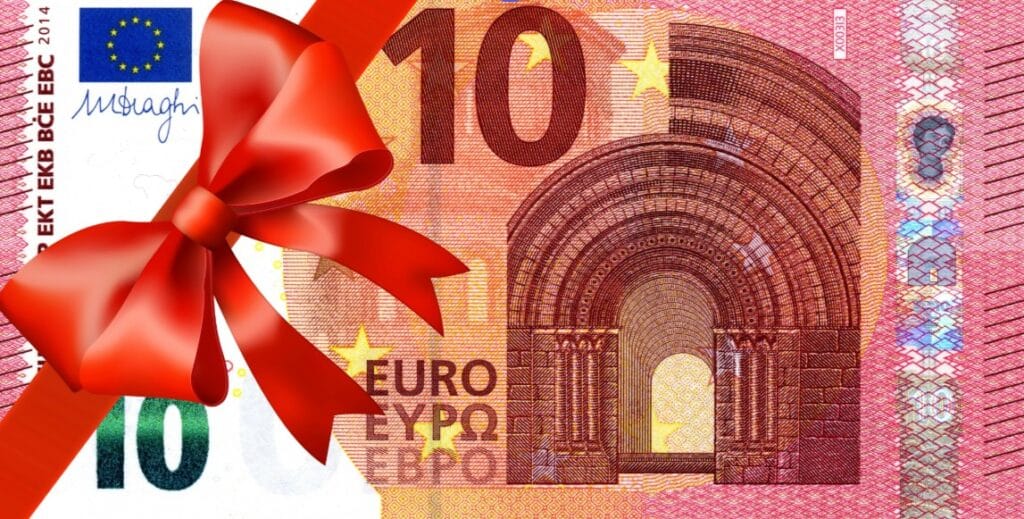Employers Can Now Gift €1,500 Tax-Free Vouchers!
In a significant boost for employees across Ireland, the Central Bank has announced that the tax-free voucher limit has been increased to €1,500 per year. This change, part of Budget 2025, means that employers can now reward their staff with more substantial tax-free benefits.

Previously capped at €1,000, the new limit allows for greater flexibility and generosity in employee rewards. This move is expected to enhance employee morale and retention, providing a welcome financial boost amid the evolving economic landscape.
The recent article from the Irish Independent confirms that, starting from January 1, 2025, employers in Ireland can now give employees up to €1,500 in tax-free vouchers annually. This is an increase from the previous limit of €1,000. These vouchers, which can also be digital gift cards, must be used to purchase goods or services and cannot be redeemed for cash.
Tax Free Vouchers - What To Do
For Employees:
- Check with Your Employer: Confirm if your employer plans to take advantage of this increased limit.
- Plan Your Spending: Since the vouchers must be used for goods or services, think about where you can use them effectively.
For Employers:
- Update Your Policies: Adjust your employee benefits policies to reflect the new €1,500 limit.
- Communicate with Employees: Inform your employees about the new benefit and how they can use it.
- Ensure Compliance: Make sure the vouchers are used in accordance with the rules, i.e., not redeemable for cash and used for purchasing goods or services.
This change is part of the government’s efforts to provide more flexible and generous benefits to employees, enhancing their overall compensation package.
What Are Taxable Benefits Provided to Employees?
According to Revenue, Taxable benefits, also known as benefits-in-kind (BIK), are non-cash benefits provided by employers to employees. These benefits are considered part of the employee’s taxable income and are subject to income tax, Pay Related Social Insurance (PRSI), and Universal Social Charge (USC). Here are some common examples of taxable benefits provided to employees in Ireland:
- Company Cars: Private use of a company car is a taxable benefit. The value of the benefit is based on the car’s original market value and the amount of private mileage.
- Medical Insurance: If an employer pays for an employee’s medical insurance, the cost is considered a taxable benefit.
- Accommodation: Free or subsidized accommodation provided by the employer is taxable unless the job requires the employee to live on-site.
- Loans: Loans provided by the employer at preferential interest rates are taxable. The benefit is the difference between the interest charged and the market rate.
- Childcare Facilities: Free or subsidized childcare facilities provided by the employer are taxable.
- Subscriptions: Payments for club subscriptions or professional memberships that are not required for the job are taxable.
- Vouchers: Vouchers provided to employees are generally taxable unless they fall under the small benefit exemption.
- Discounts: Discounts on goods or services provided by the employer at below cost are taxable.
What is Gift Tax?
Imagine this: You’ve just received a generous gift from a relative – maybe it’s a chunk of cash, a piece of property, or even a valuable piece of art. While it’s exciting to receive such a gift, there’s a little thing called gift tax that you need to be aware of.
In Ireland, gift tax is officially known as Capital Acquisitions Tax (CAT). This tax applies to both gifts and inheritances. Essentially, if you receive a gift or inheritance that exceeds a certain value, you might have to pay tax on it. The idea behind this tax is to prevent people from avoiding inheritance tax by giving away their assets before they pass away.
Gift Tax Threshold and Rates
The amount of gift tax you might owe depends on your relationship to the person giving you the gift and the value of the gift itself. There are three different groups, each with its own tax-free threshold:
- Group A: This group includes children (including adopted children, stepchildren, and certain foster children) receiving gifts from their parents. The tax-free threshold for Group A is €335,000.
- Group B: This group includes siblings, nieces, nephews, and other relatives. The tax-free threshold for Group B is €32,500.
- Group C: This group covers all other relationships, including friends and distant relatives. The tax-free threshold for Group C is €16,250.
If the value of the gift exceeds these thresholds, you’ll need to pay tax on the excess amount at a rate of 33%.
Exemptions and Reliefs
Not all gifts are subject to gift tax. For example, you can receive up to €3,000 per year from any one person without it being counted towards your tax-free threshold. This is known as the small gift exemption. Additionally, gifts between spouses or civil partners are completely exempt from gift tax.
Types of Tax Free Income
In Ireland, certain types of income are exempt from Income Tax. However, you may still have to pay Universal Social Charge (USC) and Pay Related Social Insurance (PRSI) on this income. Here are some examples of tax-free income in Ireland:
- Artists’ Exemption – Income earned by artists, writers, composers, and sculptors from the sale of their work is exempt from tax, provided the work is original and creative.
- Rent a Room Relief – Income earned from renting out a room in your home is exempt from tax, up to a certain limit. For 2024, the limit is €14,000 per year.
- Woodlands Income – Income derived from the occupation of woodlands managed on a commercial basis and with a view to the realization of profits is exempt from tax.
- Child Benefit – Payments received under the Child Benefit scheme are not subject to tax.
- Scholarships – Scholarships received for full-time education are exempt from tax.
- Certain Social Welfare Payments – Some social welfare payments, such as Jobseeker’s Allowance, Disability Allowance, and State Pension (Contributory), are exempt from tax.
- Compensation for Personal Injuries – Compensation payments received for personal injuries are generally exempt from tax.
- Income from Charitable Donations – Income received by charities from donations is exempt from tax.
- Statutory Redundancy Payments – Statutory redundancy payments are exempt from tax.
- Income from Approved Retirement Funds – Income drawn from Approved Retirement Funds (ARFs) is exempt from tax, provided certain conditions are met.
- Certain Foreign Pensions – Certain foreign pensions, such as those from the United Nations, are exempt from tax.
- Income from Maintenance Payments – Maintenance payments received under a legally binding maintenance agreement are exempt from tax.
Final Thoughts
The increase in the tax-free voucher limit to €1,500 per year is a significant step towards enhancing employee benefits in Ireland. Employers, can take advantage of this new limit by updating your employee benefits policies and communicating these changes to your staff. Employees should check with your employers to see how you can benefit from this increased limit. This change not only provides a financial boost to employees but also allows employers to show their appreciation in a more substantial way. As the economic landscape continues to evolve, such measures are crucial in maintaining employee morale and retention. Let’s make the most of this opportunity to enhance workplace satisfaction and financial well-being.





